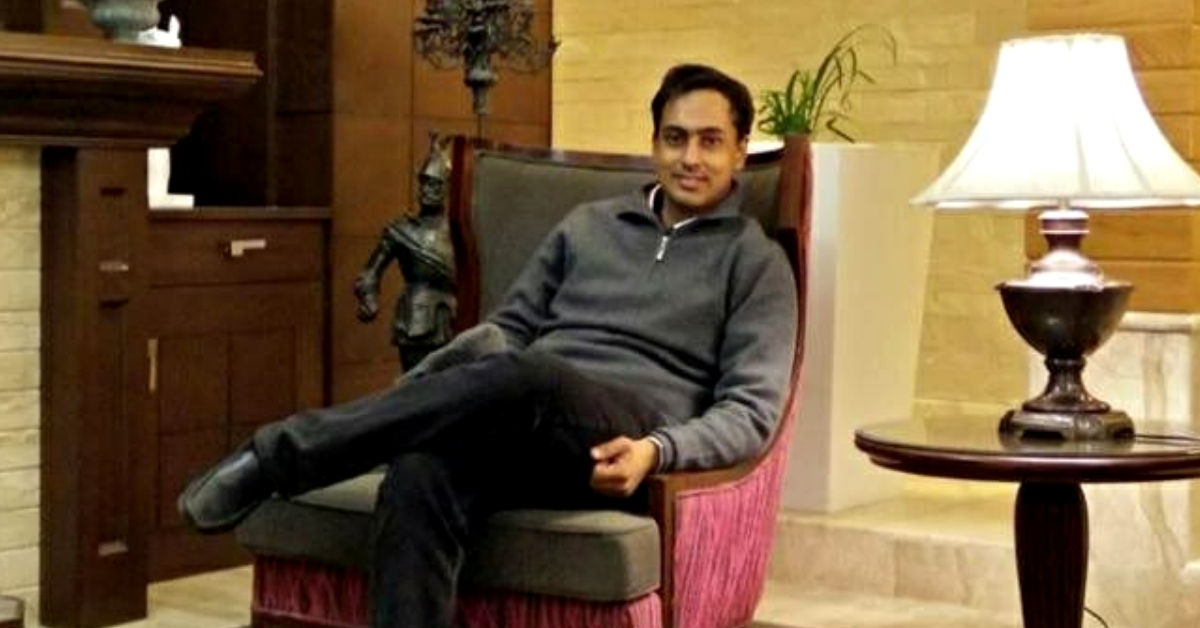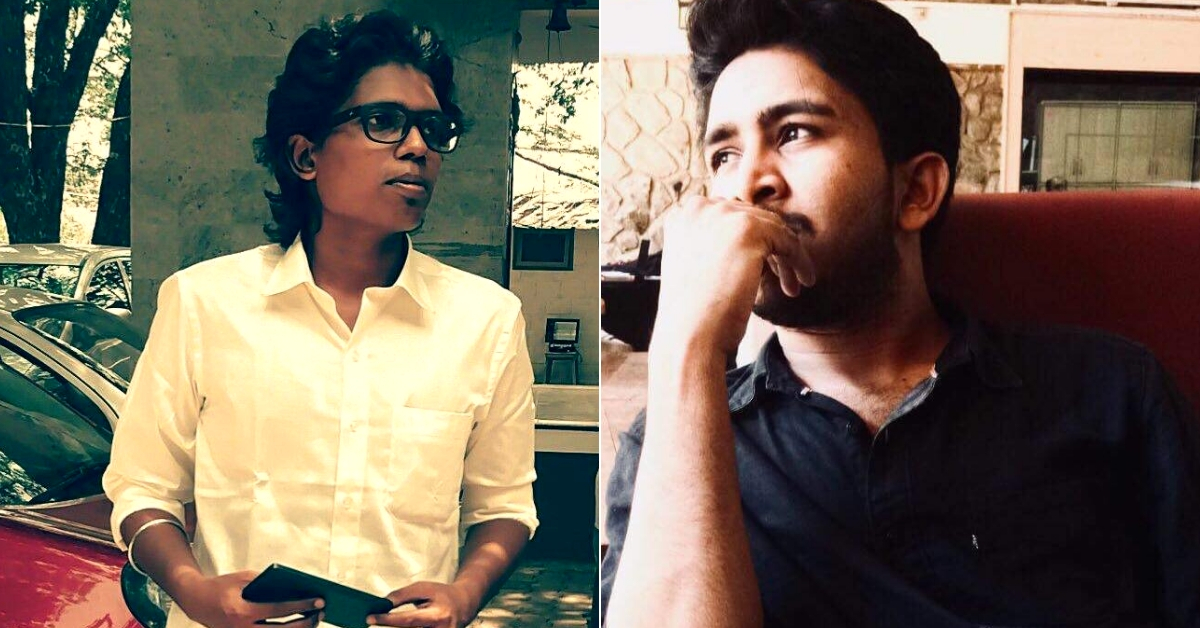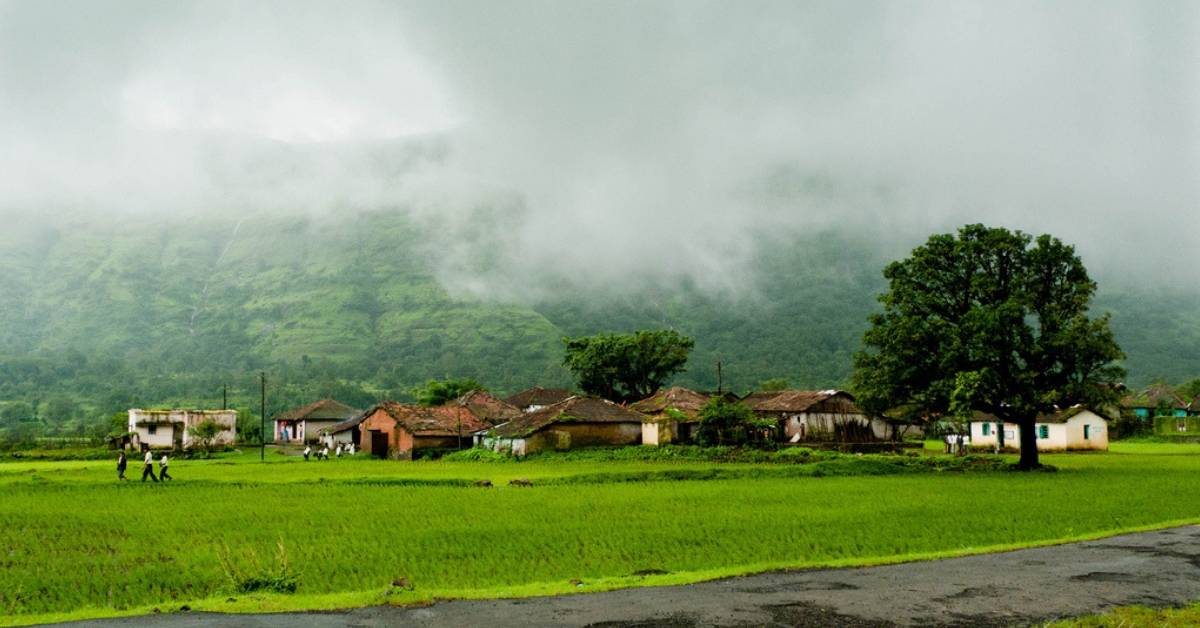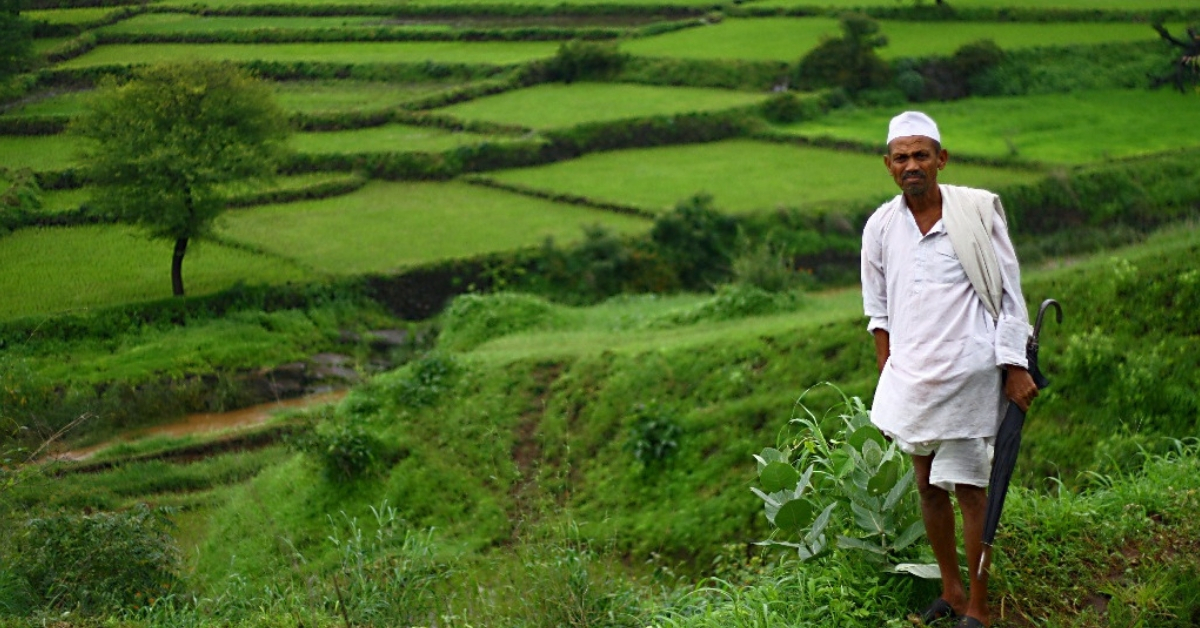IAS Officer’s Initiative Decodes 750 Govt Schemes, Helps Thousands of Pune Farmers
“We realised that although the government has so many welfare programs to offer, the end users are not aware of a majority of them… In rural parts access to internet and connectivity is a huge problem. Moreover, not everybody is tech-savvy to log on to the website.”

Even though the Central Government and the State Government of Maharashtra offer a range of schemes to the farmers and tribal population in the state, the communities are seemingly not taking advantage of them.
One important reason could be that they are finding it hard to bridge the technology gap. In Pune, thanks to the efforts of an IAS officer and students from Tata Institute of Social Sciences (TISS), Mumbai, this situation is slowly changing.
A few months ago the Maharashtra Knowledge Corporation Ltd (MKCL), a private entity, collaborated with the state government to launch a website (MahaLabharthi.in) which could provide adequate information about a farmer’s eligibility for government schemes.
The process is as follows—one goes to the website, fills in necessary information like annual income, place of residence, education etc. and finds out which scheme they are eligible for.
While the application process is quite simple, there was still a problem with accessibility.

Seeing this, Ayush Prasad, an IAS officer who is the sub-divisional officer (SDO) of Khed Taluka in Pune, decided to take the online forms offline, for the farmers’ benefit.
Speaking to Pune Mirror, he said, “We realised that although the government has so many welfare programs to offer, the end users are not aware of a majority of them. The portal, MahaLabharthi.in, is a great way to enable those living in rural parts or slums break the vicious cycle of poverty. But then, in rural parts access to internet and connectivity is a huge problem. Moreover, not everybody is tech-savvy to log on to the website. Hence, we came up with the idea of taking the schemes to citizens.”
GiveIndia and The Better India have come together to help Rebuild Kerala by supporting 41,000 affected families. You too can be a part of this movement and help us raise funds for the NGOs working to rehabilitate these families. If all of us come together with a small monthly contribution, we can make a real and meaningful difference in helping restore normalcy to those who need our help the most.
Unable to view the above button? Click here
Approximately 20,000 people in 123 villages in the Junnar taluka of Pune would benefit from this initiative, but Prasad quickly realised that he was about to embark on a herculean task, and needed help.
Since the officials in district offices were already overburdened with work, Prasad sought help from outside and Surya Karthik and Jayanti Bagda, two students of TISS, stepped in.

Their work was quite easy, in theory. All that they needed to do was take the hard copies of the online forms, get them filled from the villagers and submit the information online. When they received the eligibility results, they would intimate them to the farmers.
However, the reality was very different. The farmers were strangers to the schemes and to the volunteers. How could they trust them with their information? More importantly, how could they believe that these people were there to help them?
Devram Nana Bhalchim, who used to head a village in Junnar told PM,
“Over the last 20–25 years nobody from the government has ever stepped into our village to talk about such programmes.

We are made to fill up forms occasionally for welfare schemes at the insistence of our gram sevak, only to be told eventually that we are not eligible. Much later, we get to know that those with connections residing in other villages have walked away with the funds for that scheme…”
Adding to that, Chavan, who has been doing the rounds of several villages said, “The challenge is to convince villagers to fill up the forms. Since most of them have never reaped the benefit of these schemes, it is tough to win their trust instantly. And then those who do get convinced, expect benefits immediately after we hand them a list of schemes they are eligible to apply for. It takes several visits to a village to just make people understand that we are merely helping them get what is rightfully theirs.”
You may also like: Downtrodden For Years, Tea Garden Workers Find a Ray of Hope In This IAS Officer!
Even though they have faced resistance, the volunteers are determined to keep trying their best and go about painstakingly providing information to the farmers about the benefits they can receive, and also attempt to convince them that they only wish to help.
The aim is not just to help farmers fill in forms, but also to curb the migration of the youth to the cities, who leave their villages due to the low income and lack of opportunities.

But once government schemes start coming to their doorstep, the IAS officer and TISS volunteers hope that they will prefer to stay back.
It has been just a week since the scheme took off, and has already benefitted over 500 farmers by helping them identify the schemes that they are eligible for.
You may also like: Shocked by ‘Paan’ Coated Office Walls, IAS Officer Cleans Spit Marks Himself
“Through the current exercise, almost everyone is eligible for any of the 750 welfare schemes. The middlemen and agents have been done away with,” Chavan told PM.
In due time, the team hopes to reach out to more people and help them. In fact, MahaLabharthi is looking for volunteers to expand their team and reach more people in Junnar and other talukas of Pune. If you wish to do some fieldwork and help farmers in Pune, send an email to [email protected] and register.
(Edited by Gayatri Mishra)
Like this story? Or have something to share?
Write to us: [email protected]
Connect with us on Facebook and Twitter.
If you found our stories insightful, informative, or even just enjoyable, we invite you to consider making a voluntary payment to support the work we do at The Better India. Your contribution helps us continue producing quality content that educates, inspires, and drives positive change.
Choose one of the payment options below for your contribution-
By paying for the stories you value, you directly contribute to sustaining our efforts focused on making a difference in the world. Together, let’s ensure that impactful stories continue to be told and shared, enriching lives and communities alike.
Thank you for your support. Here are some frequently asked questions you might find helpful to know why you are contributing?


This story made me
-
97
-
121
-
89
-
167













